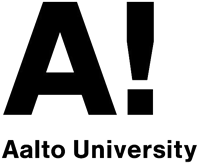About the Project
Control of magnetic domain wall motion by electric fields has recently attracted scientific attention because of its potential for energy-efficient magnetic logic and memory devices. This project explores electric-field-driven magnetic domain wall motion in thin magnetic films and patterned nanowires. The driving mechanism is either based on strain transfer from a ferroelectric layer or gating of a dielectric or solid-state ionic conductor. Combinations of these effects will also be explored to deliver new functionalities. The most successful structures will be exploited to actively tailor the transmission of magnetic spin waves.
The project is mostly experimental, but also involves micromagnetic simulations to interpret and verify measurement data. As a PhD student you will grow your own samples using magnetron sputtering and pulsed laser deposition and you will pattern the films into prototype devices using advanced photo and electron beam lithography. Sample characterization focuses on the variation of structural and magnetic properties under changing bias conditions.
As a PhD student, you will join the NanoSpin research group at Aalto University. The group focuses on cutting-edge research on electric-field controlled magnetism, magnonics, and magnetoplasmonics. The NanoSpin laboratory is equipped with instruments for advanced electronic, magnetic and magneto-optical measurements.
General requirements:
• Be fluent in English
• Have not been a resident or have conducted your main activity (studies, work, etc.) for more than 12 months within the last three years in the PhD position’s host country.
• Be in the first four years of your research career. This is measured from the date you obtained a degree that allows you to enroll in a PhD program.
• Have not yet been awarded a doctoral degree
Specific requirements/skills:
-Essential:
• MSc degree or equivalent in a subject with good bases in one or more of these or related topics: condensed matter physics,
nanoscience, applied physics, material science, nanoelectronics, physical-chemistry.
• Excellent oral and written communication skills, well developed interpersonal communication
• Enthusiastic, self-motivated, willing to learn in a multicultural environment
-Desirable:
• Experience in Nano/micro device fabrication
• Knowledge of experiment automation and other programming skills
This PhD position will be carried out in the framework of the EU’s Marie Sklodowska Curie Innovative Training Network MagnEFi which includes 11 partners, both academic (8) and industrial (3), located in France, Germany, Italy, Finland, Spain, England and the Netherlands. We will work together to develop a unique integrative approach to electric-field control of magnetism. Innovative electric-field control schemes based on Strain (S), Gating (G) and Light (L) will be thoroughly investigated and combined to produce a new class of enhanced multifunctional spintronics devices with S+G, S+L and G+L capabilities.
The benefits of this project for you and the future of your career are many fold, here's a few key aspects that MagnEFi can offer you:
• Working on the forefront of one of the most promising topics in spintronics in an international team lead by world recognised EU experts in the field.
• Benefiting from the extensive training program which includes basic and modern aspects of spintronics as well as of other exiting emerging fields such as artificial intelligence but also includes entrepreneurship, scientific writing, communication skills and intellectual property.
• Visiting other partners of the network to learn about their specific techniques and to establish collaborations which will interconnect experimenters and theorists, basic scientists and engineers, and academia and industry.
• Being granted a prestigious EU fellowship with a very competitive salary including mobility and family allowance.
• Establishing a professional network with leading scientists in academia and industry.
• Being prepared for the future after your PhD, training also includes courses on writing competitive job applications for academia and industry, writing high-impact research proposals as well as on preparing job interviews.

 Continue with Facebook
Continue with Facebook

